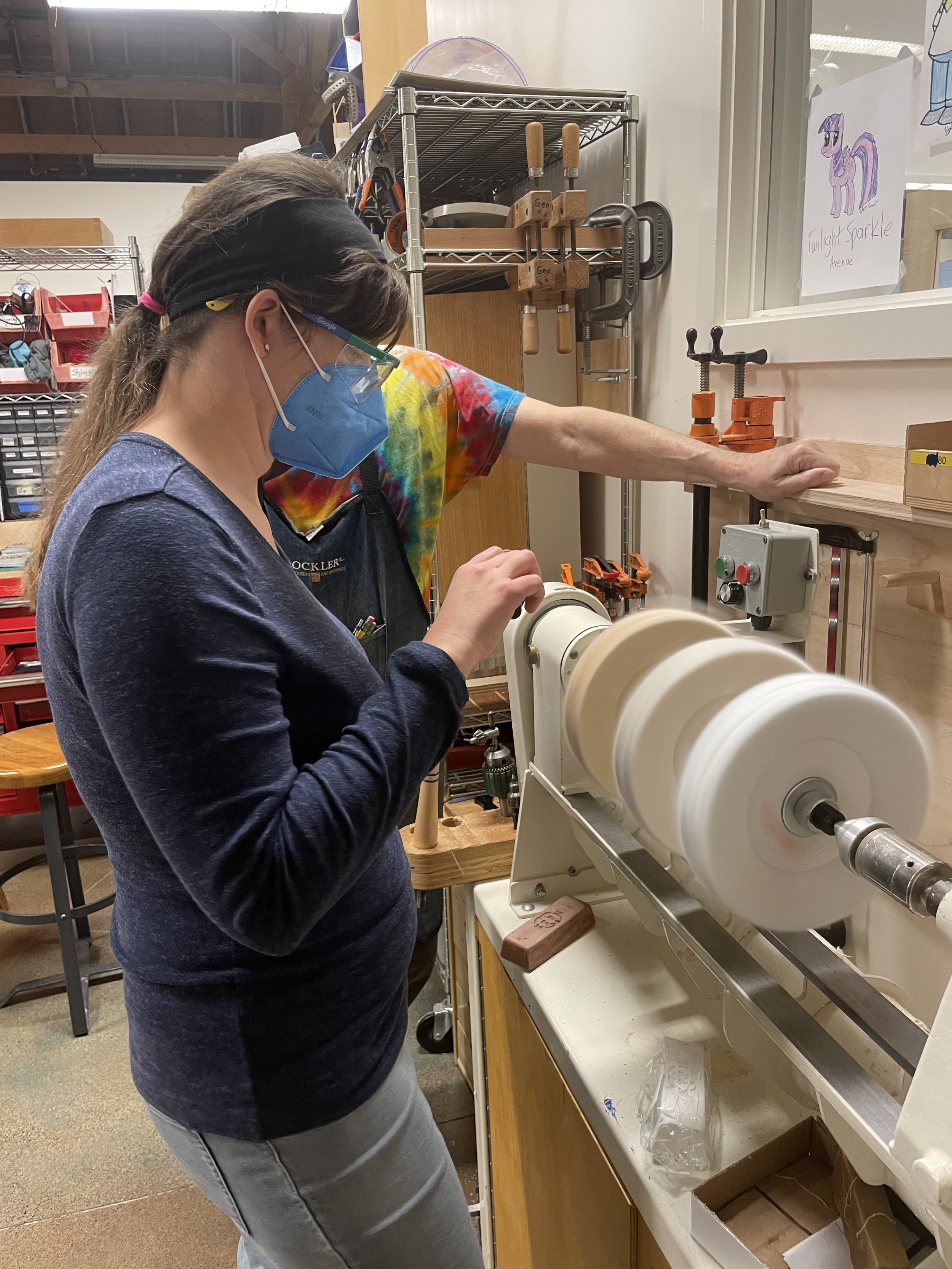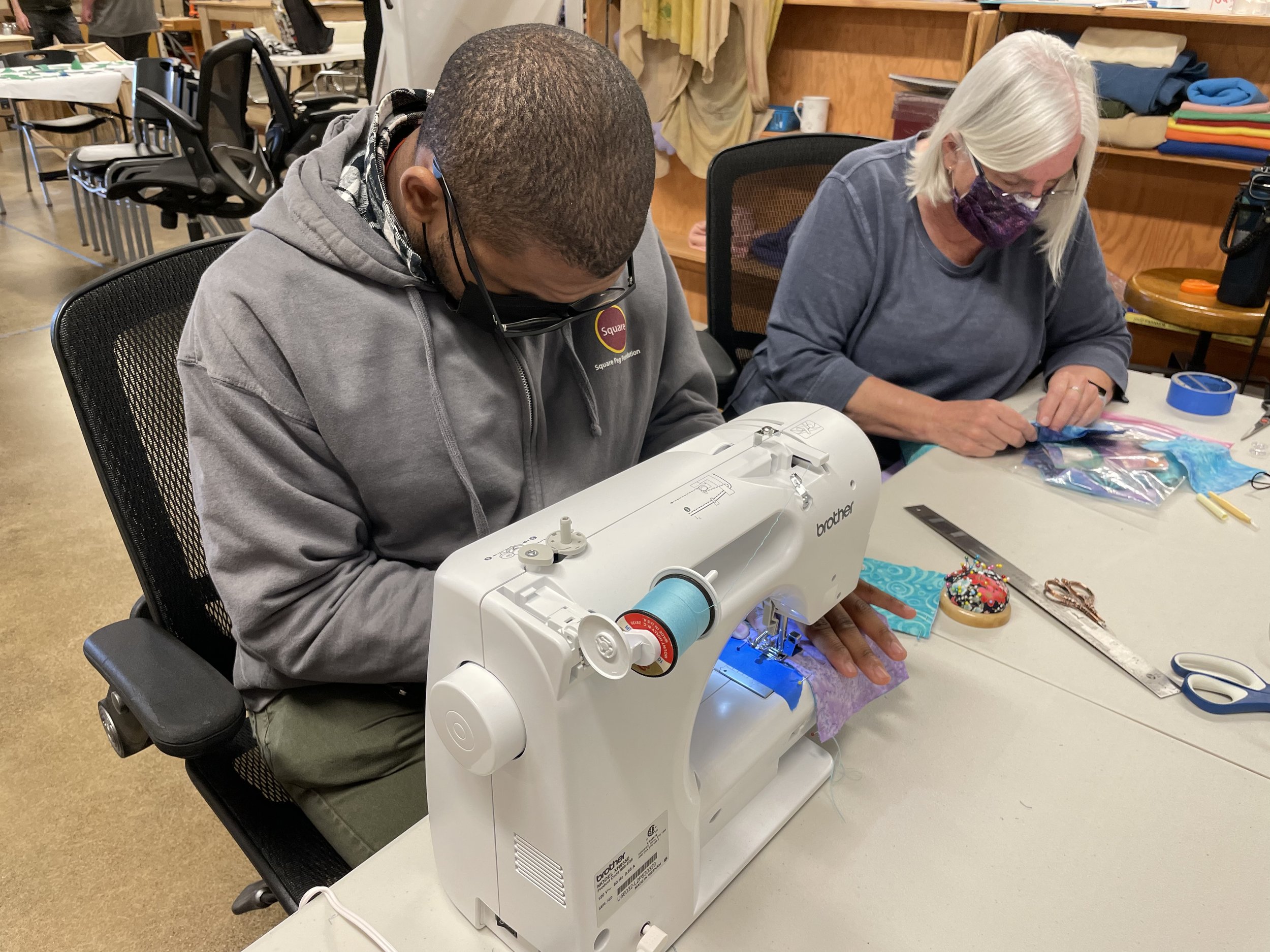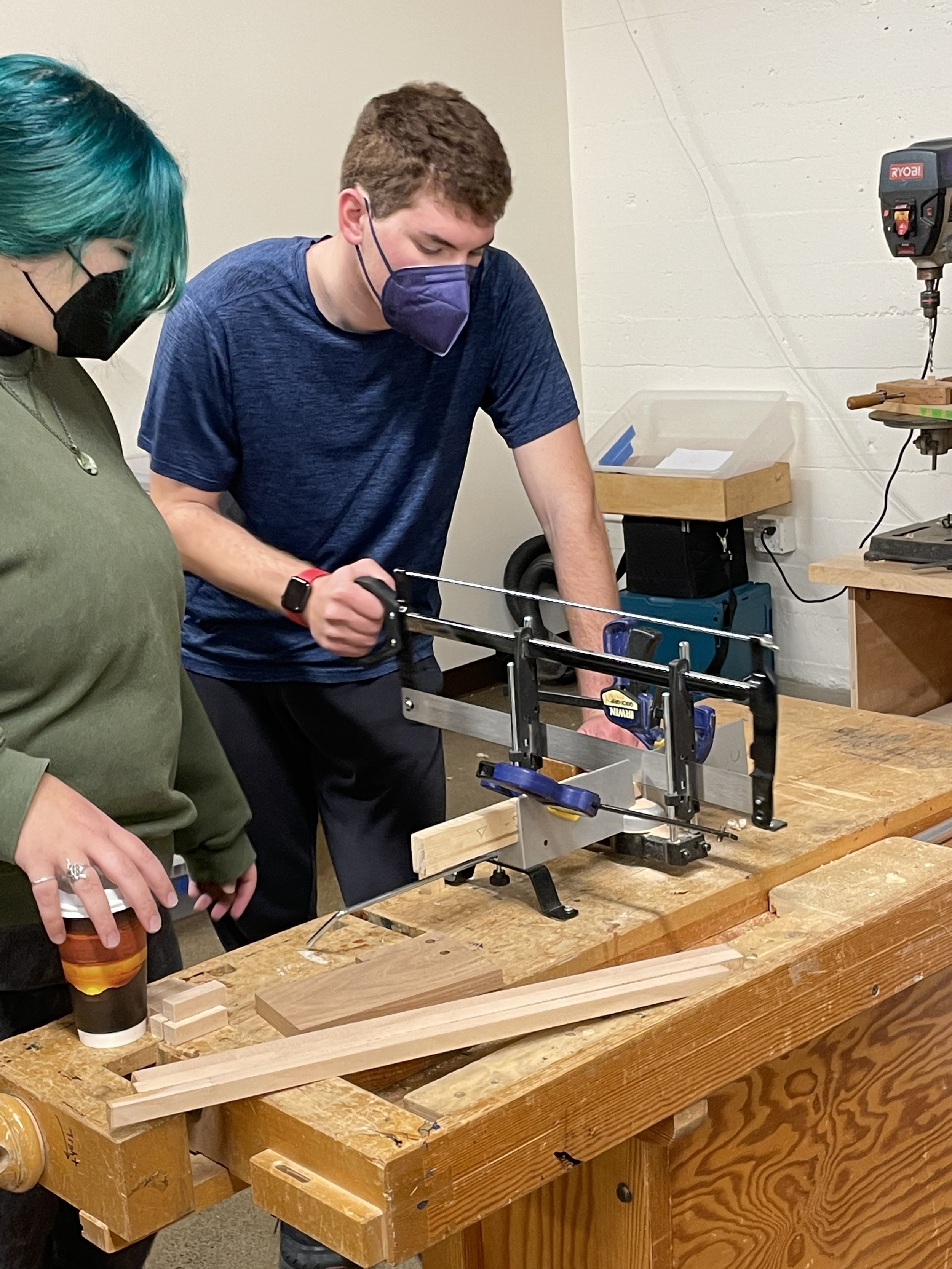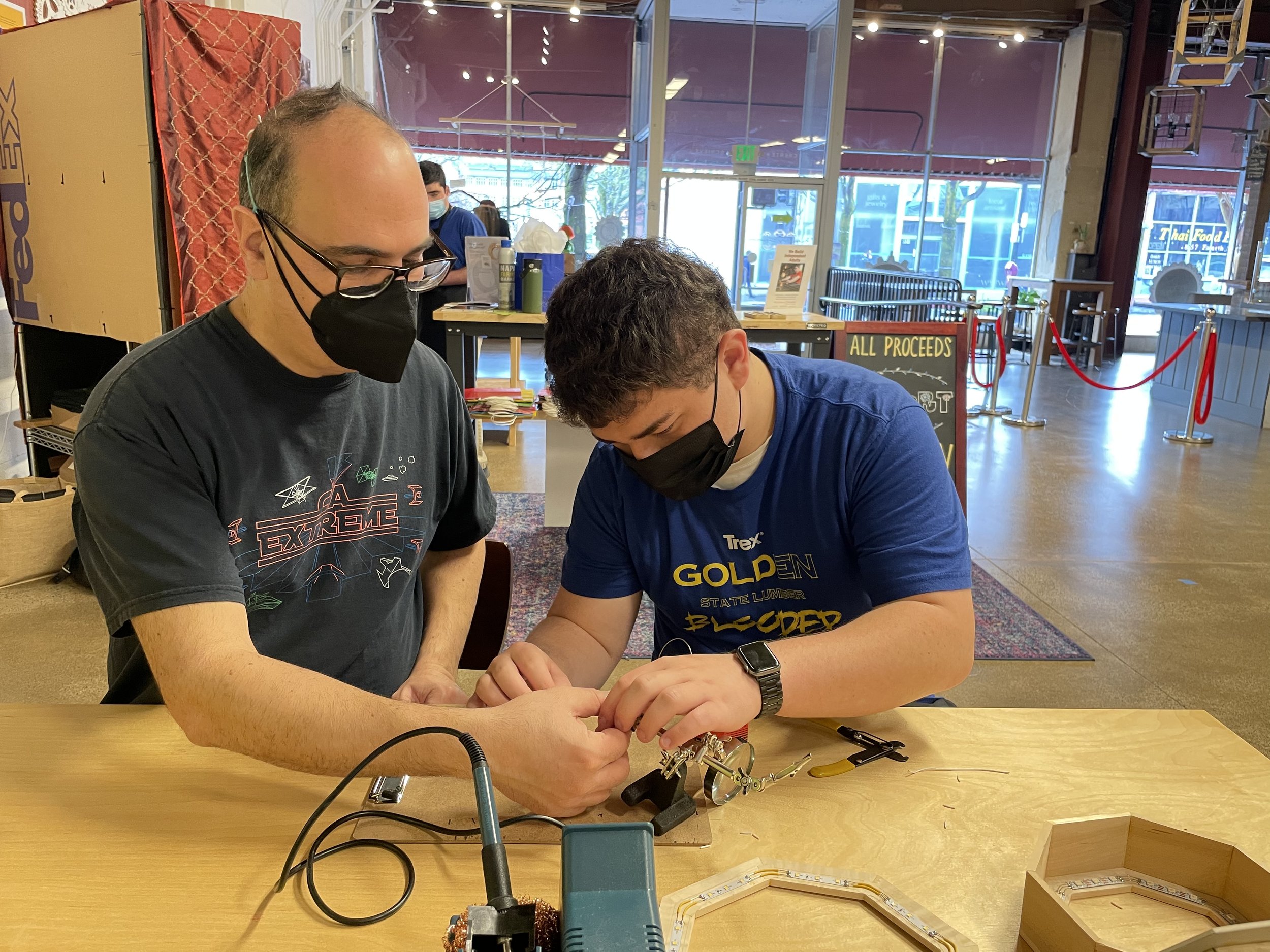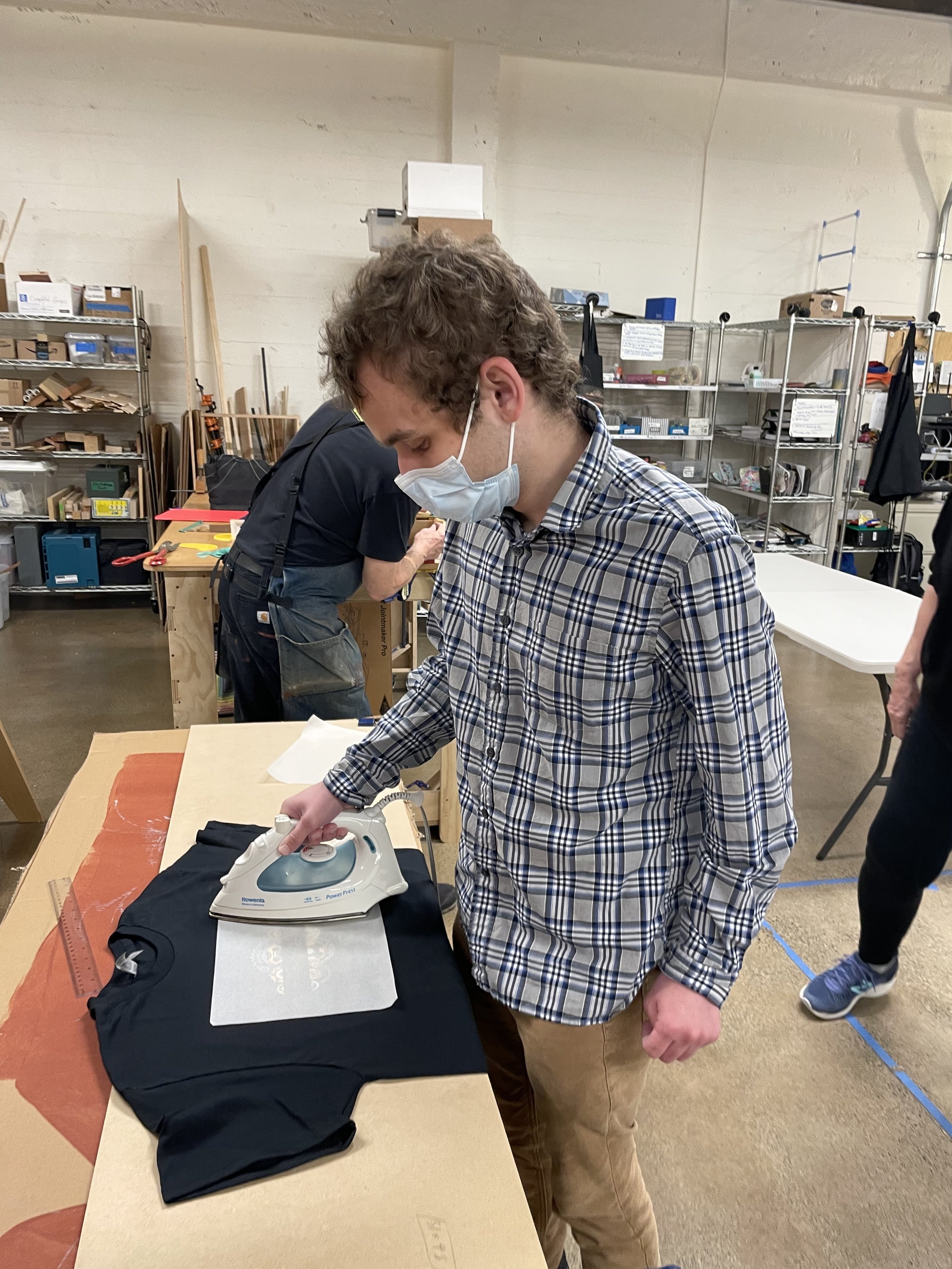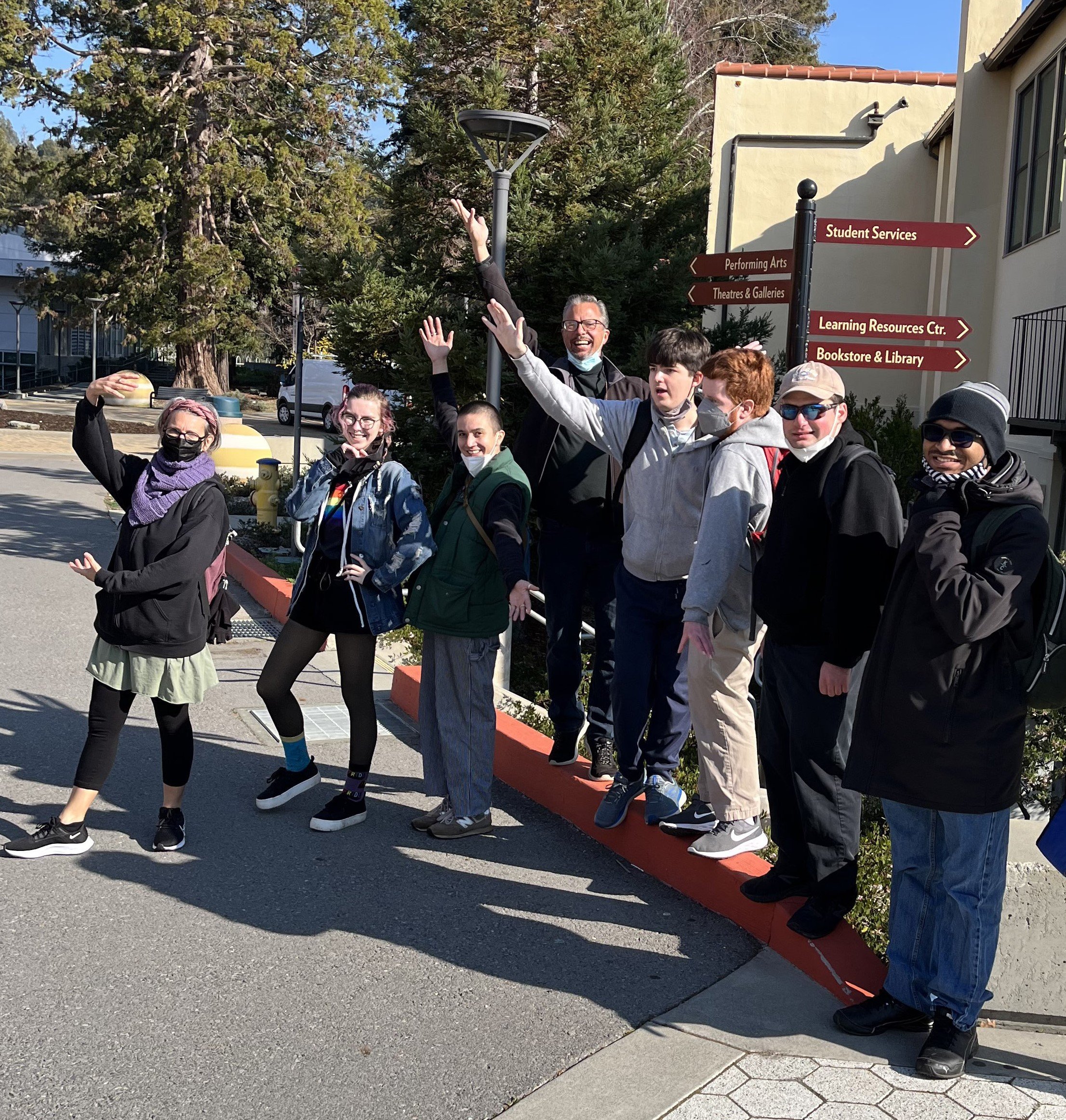
Autistry Skills Adaptation Program (ASAP)
The ASAP program provides targeted training to young adults transitioning from high school, post-high school programs, or individuals seeking support to become more independent. The goal of the program is to develop life skills, appropriate social behaviors, and basic vocational aptitude to promote independence. Although designed to prepare individuals for entry into the Autistry Comprehensive Adult Program the Autistry Skills Adaptation Program also prepares individuals for other vocational or education programs.
The Autistry Skills Adaptation Program (ASAP) is a progressive program comprised of three Phases.
Phase 1: participant attends 4 hours a day, 2 days a week (8 hrs/week)
The Adaptive Skills Trainer (AST) will work one-on-one with the participant to explore interests and assess skills. Activities may include individual projects, group projects, outdoor hikes, or community excursions. Participants will have the opportunity to learn hands-on building skills, the proper use of power tools, and the use of various types of technology, including software and programming.
Phase 2: participant attends 6 hours a day, 3 days a week (18 hrs/week)
In addition to the vocational skills addressed in their projects, the participants will be assessed on basic academic skills – reading, writing, and mathematics. Using the many resources available at Autistry, the AST will oversee individualized study sessions to improve academic skills and prepare the participant for taking a college class
Phase 3: participant attends 6 hours a day, 5 days a week (30 hrs/week)
For the last phase of ASAP, the participant will experience the full range of the Autistry Comprehensive Adult Program:
Education Program: Visits to local colleges, learning registration procedures, and exploring college courses.
Vocational Program: Volunteering at one of Autistry partner organizations such as Square Peg Foundation/Cadence Farm in Sonoma or the Western Railway Museum in Rio Vista.
Life Skills Program: Activities range from cooking lunch to appreciating the De Young Museum and may include attending cultural events and exploring historic sites. Social skills and healthy relationship goals will be practiced in community settings
Physical Fitness Program: Students work with mentors to create and implement plans to support their individual health and fitness goals. This includes diet and exercise both at the program and in their outside life. With the rest of the ACAP community, students enjoy nature hikes, walks to community outings, yoga, and basketball.
Upon completion of the ASAP program, a meeting will be held with the participant, GGRC social worker, and Autistry program director to evaluate the ASAP experience and to discuss the possible entry into ACAP or referrals to other programs.
Admission Process
We conduct an initial 1-hour intake interview to assess whether the participant is an appropriate fit for the program and whether the program meets the participant's needs and personal goals. Acceptance into the Autistry Comprehensive Adult Program is based on the following criteria:
Have no current dangerous or self-harming behaviors
Have a desire to move toward greater personal independence
Able to respond (either verbally or nonverbally) to spoken directions
The 3-Phases are flexible and may be shortened or lengthened according to the participants skill level or schedule. Adjustments to the phase timeline will be made in collaboration with the participant and the Adaptive Skills Trainer.
Autistry Skills Adaptation Program is supported by the Golden Gate Regional Center as an Adaptive Skills Training Program (Service Code 605). ASAP is also available as a private pay program to those who are not clients of GGRC.
For more information contact: Autistry Studios
448 Du Bois Street, San Rafael, CA 94901
(415) 454-1037 or info@autistry.com
